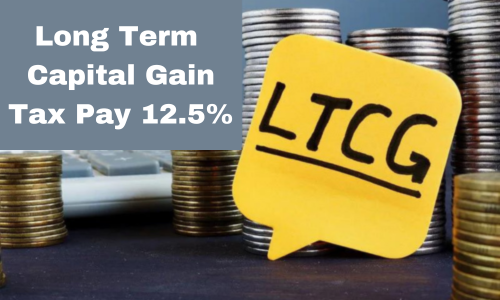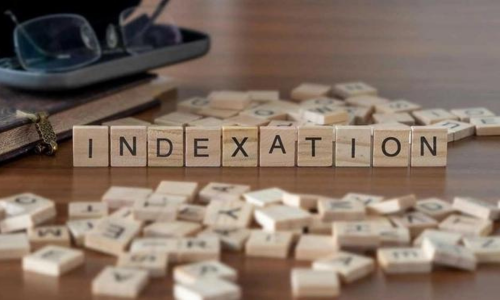Introduction
If you’ve heard about the recent changes in the tax on capital gains tax in India, you’re not alone. After the budget was announced, the Finance Minister made some adjustments in response to public concern. These changes have caused some confusion, especially among NRI property sale who are trying to understand what this means for them.
In this article, I’ll explain these changes in simple terms. I’ll walk you through what’s new, what happens if you sold your property during an uncertain time, and which tax option might be best for you. Whether you’re planning to buy or sell a property or are an NRI property sale in India, this information could help you save a lot of money on taxes.
Why read when you can watch the video
What’s New? Understanding the Recent Changes
After the budget was initially announced, there was a lot of confusion about the long-term capital gains tax. Many people thought the rules were the same as before, but they aren’t. The Finance Minister made some important changes that every property seller should know about.
So, what’s changed? Initially, the budget only offered one option for property sellers: paying 12.5% tax on long-term capital gains without any indexation benefit. This was a big shift from the previous rule, where the tax rate was 10% without indexation. Naturally, this caused some concern, especially for those who felt the change was unfair.

In response, the Finance Minister made a crucial adjustment: she restored the indexation benefit. This means that property sellers now have two options:
1. Pay 12.5% tax without indexation: as announced in the budget.
2. Pay 20% tax with indexation: which is the same as the previous rule.
Many people mistakenly believe that things have gone back to the way they were before, but that’s not entirely true. The tax rate without indexation has increased from 10% to 12.5%, which is a significant change.
What If You Sold the Property Between the Budget Announcement and This Change?
A common question is, “What if I sold my property after the budget was announced but before this new change?” It’s a valid concern because this period of uncertainty left many people wondering if they’d have to pay more tax than necessary.

The good news is that this announcement is retrospective. In other words, the benefits of the restored indexation option are still available to you, even if you sold your property during that confusing period. So, if you sold your property after the budget but before the latest announcement, you can still choose the option that benefits you the most.
How Does Indexation Benefit You?
Let’s talk about indexation. If you’ve held onto a property for a long time—say, 10, 20, or even 30 years—indexation is likely to be your best option. Indexation adjusts the purchase price of your property to account for inflation, reducing your taxable capital gain and, therefore, the tax you pay.

With the new changes, this indexation benefit is even more valuable because the tax rate without indexation has increased by 2.5% compared to the previous rule. So, if you’ve owned your property for a long time, applying indexation could save you a significant amount of money.
Which Option Should You Choose?
So, which tax option is right for you? The answer depends on how long you’ve held your property. Let’s break it down with a few scenarios.
1. You’ve Owned the Property for Over 20 Years
Let’s say you bought your property in 2000 for ₹25 lakh, and you’re planning to sell it in 2024 for ₹1 crore. Here’s how it plays out:
- With indexation: The purchase price is adjusted to approximately ₹90 lakh, leaving you with a taxable gain of ₹9.25 lakh. At 20% tax, you’ll pay ₹1.85 lakh.
- Without indexation: You’d pay 12.5% on ₹75 lakh, which equals ₹9.38 lakh.
In this case, using indexation saves you ₹7.53 lakh. If you’ve held your property for a long time, the indexation method is almost always the better option.
2. You’ve Owned the Property for About 10 Years
Now, suppose you bought the property in 2010. The indexed gain is ₹4.66 lakh, and you’d pay ₹9.13 lakh in tax with indexation. Without indexation, the tax is slightly higher at ₹9.38 lakh.
Here, the difference is only ₹24,000. While the indexation method still saves you money, the savings aren’t as significant. You might choose either option, depending on your preference.

3. You’ve Owned the Property for 5–10 Years
Let’s say you bought the property in 2015. The indexed gain is now ₹64 lakh. With indexation, you’d pay ₹12.85 lakh in tax, while without indexation, the tax drops to ₹9.38 lakh.
In this scenario, the new method without indexation saves you ₹3.48 lakh. If you’ve held your property for 5 to 10 years, this option might be more beneficial.
4. You’ve Owned the Property for Less Than 3 Years
Finally, consider a scenario where you bought the property just two years ago, in 2022. The indexed gain is ₹72 lakh, and the tax with indexation is ₹14.52 lakh. Without indexation, you’d pay ₹9.38 lakh.
Here, the new method without indexation clearly wins, saving you ₹5.14 lakh. If you’ve held your property for a short period, this is the better option.
From When Is It Applicable?
One last thing to consider: when do these changes take effect? It’s crucial to understand this so you can plan accordingly. Most of the time, you’ll need to pay your taxes by March 31st. If you’re planning to sell your property before March 31, 2025, you’ll need to decide which option you want to go with and whether you need to make any related investments.
Conclusion
As a general rule, if you’re selling an older, inherited property, the indexation method will likely save you more in taxes. On the other hand, if you’ve purchased the property more recently, the new method without indexation may be more beneficial.

